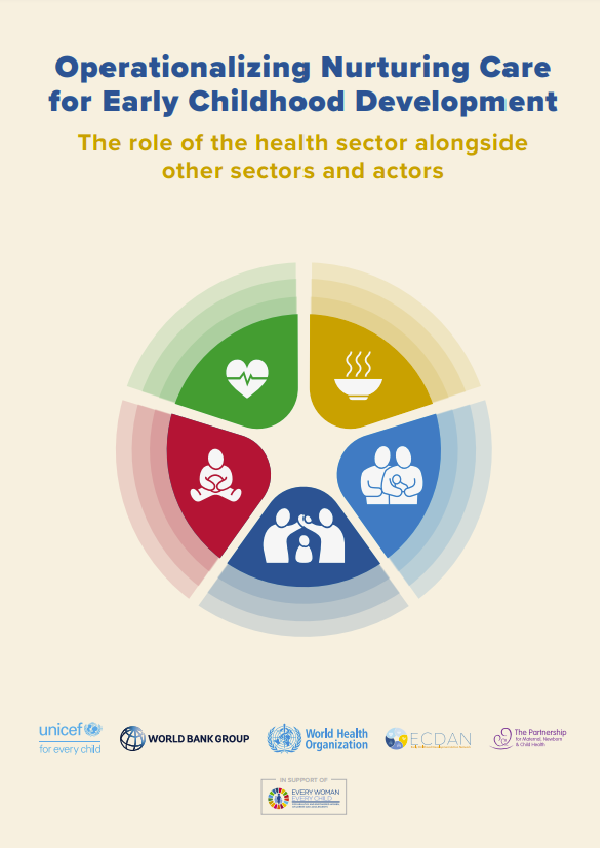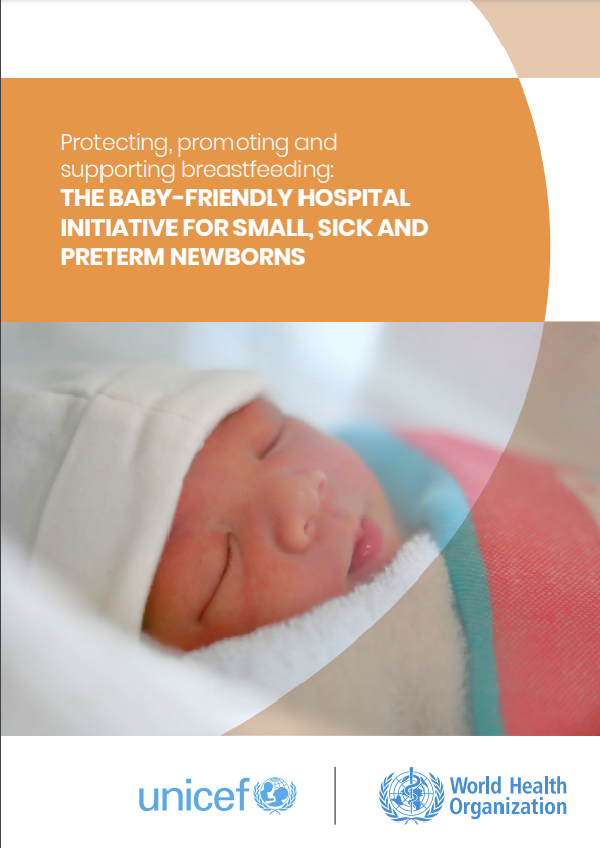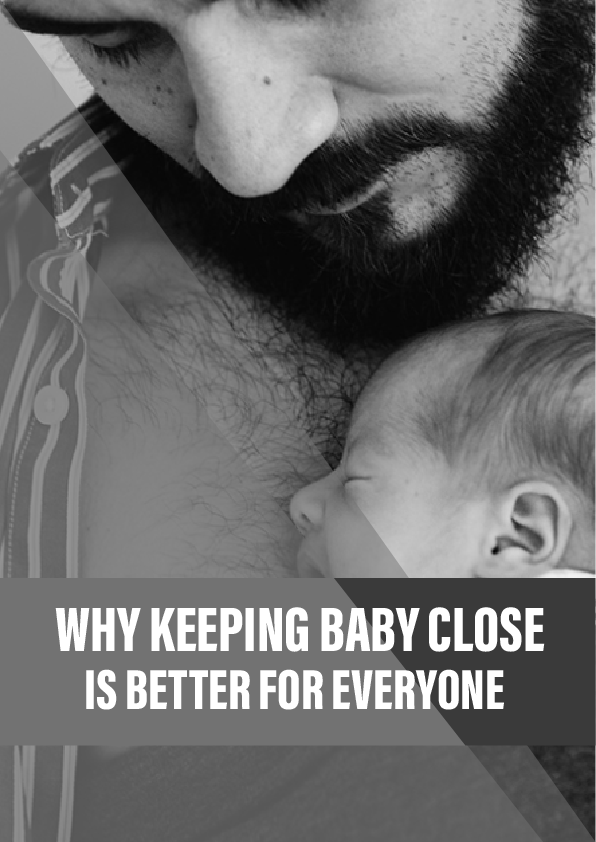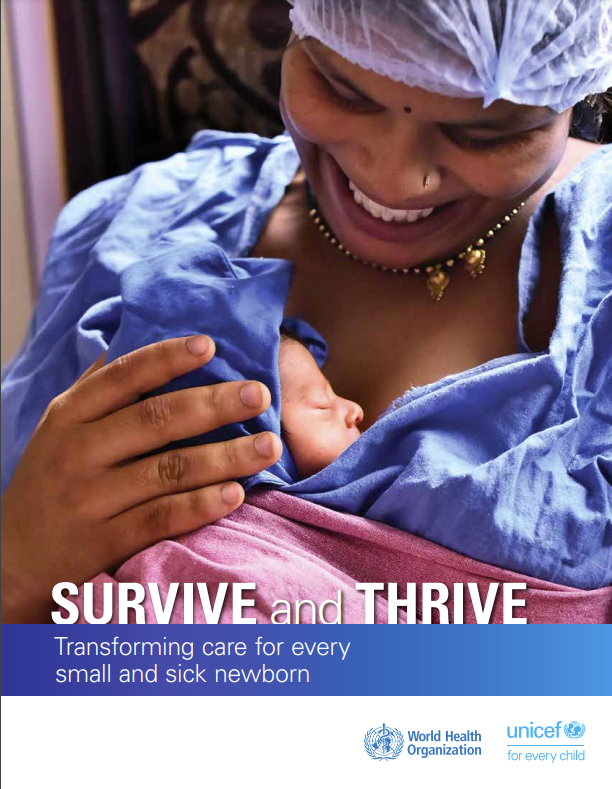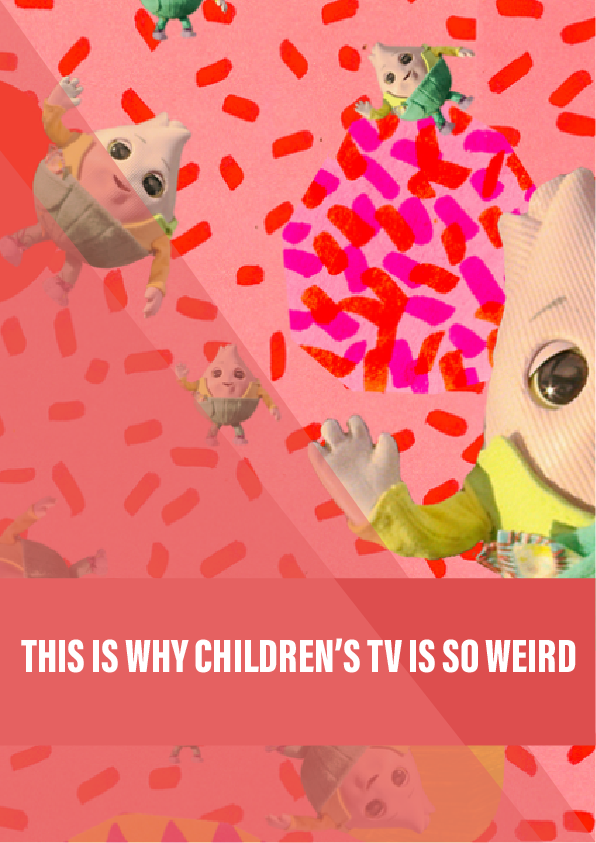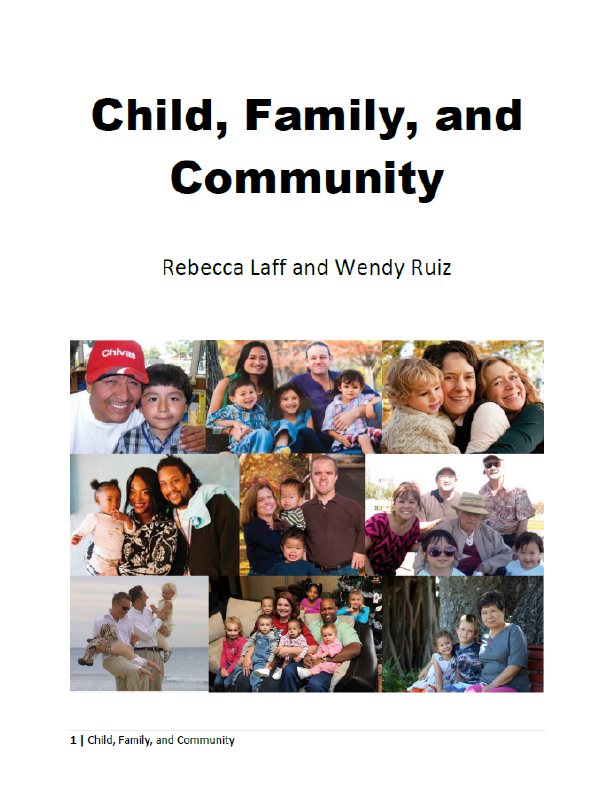This document is the report of the technical meeting convened by the World Health Organization (WHO) on ‘Operationalizing Nurturing Care’. The meeting was organized by the WHO Departments of Maternal, Newborn, Child and Adolescent Health and Mental Health and Substance Abuse. Collaborating departments included the Management of NCDs, Disability and Violence, and Injury Prevention; Nutrition for Health and Development; HIV/AIDS; and Gender, Equity, and Rights.
A unique convergence of evidence and commitment to the right of all children to be healthy and develop their full potential has led to early childhood development gaining traction as an important issue, shared across sectors through the promotion of nurturing care. This convergence is relevant for all settings, but especially in development and humanitarian crisis contexts. The health sector should play a central role in promoting nurturing care through actions within its mandate and through advocacy and engagement with other sectors.
Early childhood development refers to the cognitive, physical, language, motor, social and emotional development of children from conception to 8 years of age. Evidence shows that the early years of life are critical for children’s healthy growth and development. During this period essential neural pathways are formed that lay the foundation for health, learning, productivity and social well-being throughout the life course.
Children need nurturing care to achieve their full potential. It encompasses the conditions for good health, nutrition, security and safety as well as opportunities for early learning for the young child, and is underpinned by responsive caregiving across all these domains (Figure 1). The home environment is an important place for the provision of nurturing care to young children given first and foremost by primary caregivers.1 But others also can contribute nurturing care in the lives of young children, such as people working in organized child care. All caregivers need to be empowered and supported to provide nurturing care, and this can be done through supportive systems, policies, standards and information.
WHO, UNICEF and the World Bank Group, in collaboration with the Partnership for Maternal, Newborn and Child Health, the Early Childhood Development Action Network and many other partners developed the Nurturing Care Framework as a roadmap for action (1). The Framework summarizes the evidence on why nurturing care is essential for young children and what caregivers need in order to provide it. It focuses specifically on the period from conception to year 3, as this is the time when brain development is extremely sensitive to external influences; yet, this is also the period often given least attention when investments are made towards early childhood development.
Purpose
This guidance note specifically targets the health sector and aims to catalyse country-level dialogue and action focusing on health service delivery and systems strengthening while also outlining complementary actions by other sectors. It is relevant for national governments, specifically ministries of health, and for national and global development partners and other stakeholders. This guidance note is the first in a series of resources for all relevant sectors that will become available to facilitate the operationalization of the Framework. Key sectors that should engage in this operationalization include health, nutrition, education and protection.
